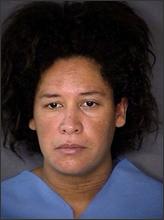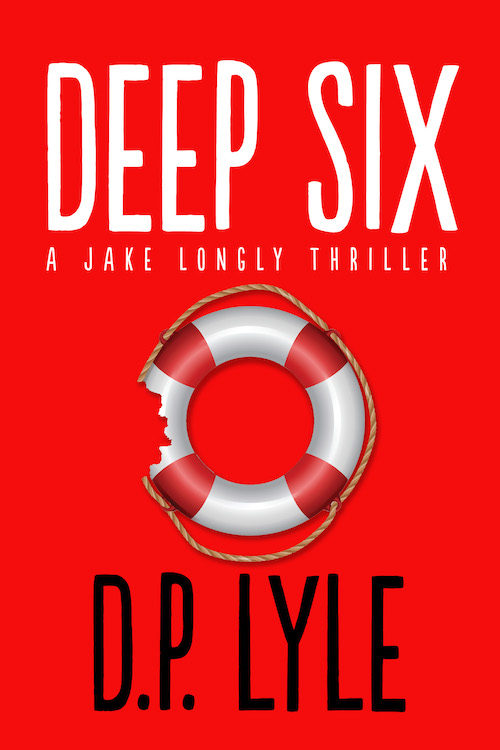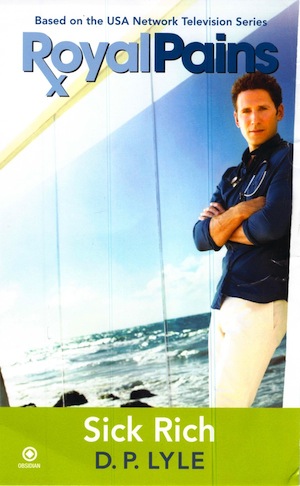Postpartum Depression is common. Postpartum Psychosis is rare. Thankfully.
Andrea Yates drowned her five children in a bathtub. Horrible. Unfathomable. She was ultimately diagnosed with postpartum psychosis and was found not guilty by reason of insanity.
Otty Sanchez did something worse. Much worse. But for likely the same reason. She murdered her 3 1/2-week-old son because the devil told her to do it. Unfortunately she did more than that. Much more. Though the official autopsy and police reports are not yet available, the media reports paint an extremely disturbing picture. Neither Stephen King nor Dean Koontz could make up this horror.

She apparently used a sword, a machete, and a kitchen knife to stab, gut, skin, decapitate, and dismember the infant. She bit off three toes and consumed parts of his brain and other body parts. She screamed that the devil had told her, made her, do this and slashed her own chest, abdomen, and throat. She survived. So did her other two children, ages five and seven, who were in the house at the time but were not targets of her devil-directed actions.
When I read the initial news report, I knew what the diagnosis would be: Postpartum Psychosis. Not only was the timing right, but what else could drive a mother to do this?
A family member reported that Otty had had psychiatric treatment in the past so her problems, though now much more acute and severe, were not new.
Postpartum Depression and Postpartum Psychosis are poorly understand psychiatric entities that come in many forms. If recognized and treated early, they tend to resolve quickly and without long-term problems in most sufferers. If not, they can linger and progress to full-blown psychosis. Many victims of these disorders have underlying schizophrenia, depression, and/or bipolar disorder.
First recognized in 1850, the classic presentation is for the psychiatric symptoms to appear just before or just after the delivery, usually after, and typically within 3-4 weeks after delivery. The person might become moody, withdrawn, sad, cry a lot, exhibit anxiety and agitation, suffer insomnia, ignore their new infant, ignore themselves in that they don’t bath or eat consistently, exhibit periods of mania or delirium, and experience hallucinations, such as visions or voices.
This should be considered a psychiatric emergency and the victim should be hospitalized and treated with antidepressant or antipsychotic drugs. If so, recovery and return to full normalcy is likely. Untreated you get an Andrea Yeats or an Otty Sanchez.
Postpartum Psychosis:
Wikipedia Postpartum Psychosis
Otty Sanchez:

























Patrice
July 28, 2009 at 5:26 pm
When I hear stories like this, about mothers killing their own children, it makes me understand why the ancients believed in devil possession and exorcisms. Before psychiatry how else could we explain this behavior? A mother naturally bonds with her infant. It is a beautiful and natural thing. But the opposite is horrific and how can we explain this? This year I read Patrick Treacy’s book “Stalking Irish Madness”. He had vague memories of visiting his grandmother in a sanitarium. As an adult his two sisters changed overnight. The diagnosis was schizophrenia. He traveled back to his ancestor’s county in Ireland and discovered stories of faeries who would steal the soul and a healing well which would cure those who drank from it. We are just starting to understand this disease but it has been well documented by folklore.
LikeLike
Katherine Stone
July 29, 2009 at 1:18 pm
Thank you for writing about this with some compassion and understanding that is usually not found in any form of media when it comes to the discussion of postpartum psychosis and infanticide. The only suggestion I would make is in regard to the last line of your post. Not all untreated women with postpartum psychosis kill their children, as did Sanchez and Yates. But since the rate of infanticide for women with postpartum psychosis is 10%, it is important that all women with the illness receive treatment and are carefully monitored so that the tragedies that can sometimes happen are prevented.
LikeLike
D.P. Lyle, MD
July 29, 2009 at 1:53 pm
Thanks for your note. Your thoughts are very helpful. Sorry for the confusion. I certainly didn’t mean to imply that all untreated cases of Postpartum Psychosis result in such tragic outcomes, but I did mean to stress the importance of early recognition and treatment. Even if nothing bizarre and violent occurs in an untreated victim, the long term mental health problems that often follow can be severe. Early treatment offers the best chance of avoiding violent events and improving long term outlook. Again, thanks. Your comments are always welcome.
LikeLike
Karen H.
July 31, 2009 at 3:35 pm
As an author who has written about this subject, I’ve been following this unfortunate case this week. You have a very thoughtful post here today and I hope it brings compassionate attention to this issue.
LikeLike